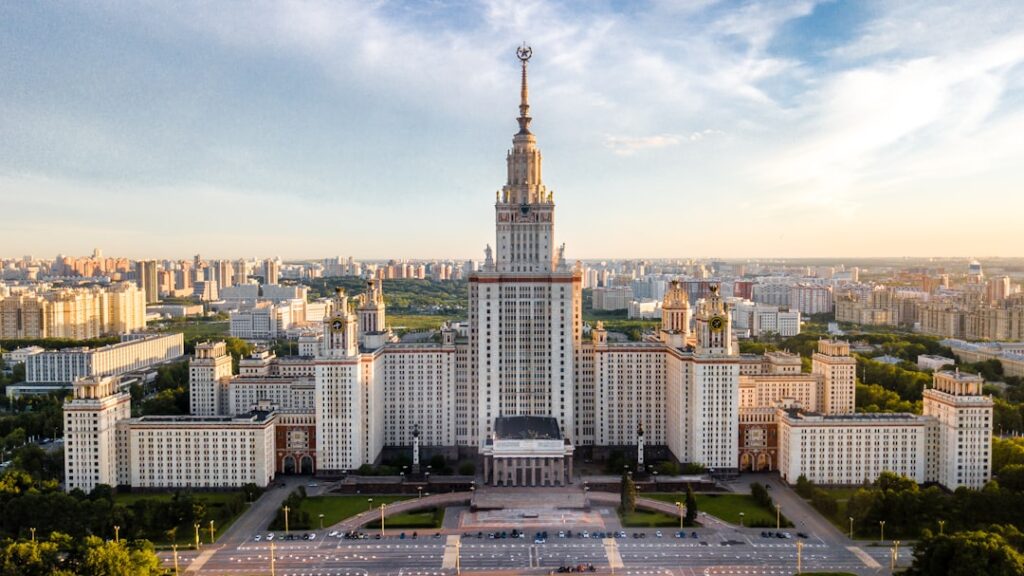Russia’s AI industry has been rapidly growing in recent years, positioning the country as a major player in the global AI landscape. With a strong focus on research and development, Russia has made significant strides in advancing AI technology and its applications across various industries. The importance of AI in Russia’s economy cannot be overstated, as it has the potential to drive innovation, increase productivity, and create new opportunities for economic growth.
Key Takeaways
- Russia is experiencing an AI revolution with significant growth in the industry.
- The state of AI development in Russia is promising, with a focus on natural language processing and computer vision.
- Opportunities for AI in Russia’s economy include healthcare, finance, and transportation.
- Challenges facing Russia’s AI industry include a lack of investment and a shortage of skilled workers.
- Government initiatives to promote AI in Russia include the creation of a national AI strategy and investment in research and development.
The State of AI Development in Russia
The current state of AI technology in Russia is quite advanced, with numerous research institutions, startups, and tech companies leading the way in developing cutting-edge AI solutions. Russian researchers have made significant contributions to the field of AI, particularly in areas such as natural language processing, computer vision, and machine learning. In terms of AI development, Russia is often compared to other countries such as the United States and China.
While the United States remains a global leader in AI research and development, Russia has made significant progress in catching up. In recent years, Russian companies and research institutions have produced groundbreaking AI technologies and achieved notable milestones. For example, Yandex, Russia’s leading search engine company, has developed advanced machine learning algorithms that power its search engine and other services. Additionally, Russian startups like Cognitive Technologies are making waves in the autonomous vehicle industry with their AI-powered solutions.
Opportunities for AI in Russia’s Economy
The potential applications of AI in various industries present significant opportunities for economic growth in Russia. One area where AI can have a transformative impact is healthcare. By leveraging AI technologies such as machine learning and data analytics, healthcare providers can improve patient outcomes, optimize resource allocation, and enhance diagnostic accuracy. For example, Russian startup Cardiolyse has developed an AI-powered platform that analyzes electrocardiogram (ECG) data to detect cardiovascular diseases.
Another industry that stands to benefit from AI is manufacturing. By implementing AI technologies such as robotics and automation, manufacturers can increase productivity, reduce costs, and improve product quality. Russian companies like Cognitive Pilot are developing AI-powered systems for industrial automation, enabling manufacturers to streamline their operations and improve efficiency.
Challenges Facing Russia’s AI Industry
| Challenges Facing Russia’s AI Industry |
|---|
| Lack of funding for AI research and development |
| Shortage of skilled AI professionals |
| Difficulty in accessing and sharing data |
| Low adoption of AI technologies by businesses |
| Concerns over AI ethics and regulation |
| Competition from other countries with more advanced AI industries |
Despite the progress made in AI development, Russia’s AI industry faces several challenges that need to be addressed for sustained growth. One of the main challenges is the lack of funding and investment. While there are government initiatives to support AI research and development, more investment is needed to fuel innovation and commercialization of AI technologies. Additionally, there is a shortage of skilled AI professionals in Russia, which hinders the industry’s growth potential.
Another challenge facing Russia’s AI industry is limited access to data. AI algorithms require large amounts of high-quality data to train and improve their performance. However, accessing relevant data can be challenging due to privacy concerns and data protection regulations. This lack of data availability hampers the development and deployment of AI solutions in various industries.
Government Initiatives to Promote AI in Russia
The Russian government has recognized the importance of AI in driving economic growth and has implemented several policies and initiatives to promote its development. One such initiative is the National Technology Initiative (NTI), which aims to create a favorable environment for technological innovation and entrepreneurship in Russia. The NTI includes a focus on AI as one of its key areas of development.
Additionally, the Russian government has established the Digital Economy program, which aims to accelerate the digital transformation of various sectors of the economy, including AI. The program includes measures to support research and development in AI, promote collaboration between academia and industry, and foster the growth of AI startups.
Education and Workforce Development for AI in Russia

To address the shortage of skilled AI professionals, efforts are being made to develop AI talent in Russia through education and workforce development programs. Several universities in Russia offer AI-related courses and programs, providing students with the necessary skills and knowledge to pursue careers in AI. Additionally, there are initiatives to train existing professionals in AI through workshops, boot camps, and online courses.
Furthermore, collaborations between academia and industry are being fostered to bridge the gap between theoretical knowledge and practical skills. This includes partnerships between universities and tech companies, as well as internships and research projects that provide students with hands-on experience in AI development.
Ethical and Legal Considerations for AI in Russia
As AI technologies become more advanced and pervasive, ethical and legal considerations surrounding their use become increasingly important. In Russia, there are ongoing discussions about the ethical implications of AI, particularly in areas such as privacy, bias, and accountability. The government is working on developing regulations and guidelines to ensure the responsible and ethical use of AI.
Comparisons can be made with other countries’ approaches to AI regulation. For example, the European Union has implemented the General Data Protection Regulation (GDPR), which sets strict rules for the collection, storage, and use of personal data. In contrast, China has taken a more relaxed approach to data privacy, allowing for greater data collection and use by AI systems. Russia is still in the process of developing its own regulatory framework for AI.
International Collaboration in Russia’s AI Industry
International collaboration plays a crucial role in advancing AI research and development in Russia. Russian researchers and companies actively collaborate with their counterparts from around the world to exchange knowledge, share resources, and work on joint projects. These collaborations help accelerate innovation and bring together diverse perspectives and expertise.
One example of successful international collaboration is the partnership between Skolkovo Institute of Science and Technology (Skoltech) in Russia and the Massachusetts Institute of Technology (MIT) in the United States. The two institutions have established joint research centers focused on AI and other emerging technologies. This collaboration allows researchers from both countries to work together on cutting-edge AI projects and leverage each other’s strengths.
Future Prospects for AI in Russia
The future of AI in Russia looks promising, with continued growth and advancements expected in the coming years. As the government continues to invest in AI research and development, more funding and resources will become available to support innovation and commercialization. This will help drive the adoption of AI technologies across various industries and contribute to economic growth.
However, there are also potential challenges that need to be addressed. One challenge is the need for continuous investment in AI education and workforce development to ensure a steady supply of skilled professionals. Additionally, the ethical and legal considerations surrounding AI need to be carefully addressed to ensure responsible and ethical use of AI technologies.
Implications for Global AI Development
Russia’s AI industry has the potential to significantly impact global AI development. With its strong focus on research and development, Russia is producing cutting-edge AI technologies and solutions that can be applied across various industries. The advancements made in Russia’s AI industry can contribute to global innovation, drive economic growth, and address societal challenges.
As Russia continues to invest in AI research and development, collaborate with international partners, and address challenges such as funding, skills shortage, and data access, its AI industry will continue to grow and thrive. The future of AI in Russia looks promising, with opportunities for further advancements and applications across various sectors. The lessons learned from Russia’s AI revolution can also provide valuable insights for other countries looking to develop their own AI industries.
If you’re interested in exploring the intersection of Russia and AI, you should definitely check out this fascinating article on how Vision AI is transforming various industries. From healthcare to transportation, Vision AI is revolutionizing the way we perceive and interact with the world around us. Discover how this cutting-edge technology is being harnessed in Russia and beyond to drive innovation and improve efficiency. To learn more, click here.
FAQs
What is AI?
AI stands for Artificial Intelligence. It is a branch of computer science that deals with the creation of intelligent machines that can perform tasks that typically require human intelligence, such as visual perception, speech recognition, decision-making, and language translation.
What is Russia’s involvement in AI?
Russia has been investing heavily in AI research and development in recent years. The country has set a goal to become a global leader in AI by 2030 and has allocated significant resources to achieve this objective. The Russian government has also established a national AI strategy and created a dedicated AI development center.
What are some of the AI projects that Russia is working on?
Russia is working on a range of AI projects across various sectors, including healthcare, transportation, and defense. Some of the notable projects include the development of autonomous vehicles, AI-powered medical diagnosis systems, and intelligent robots for military applications.
What are the potential benefits of AI for Russia?
AI has the potential to bring significant benefits to Russia, including increased productivity, improved healthcare outcomes, and enhanced national security. AI can also help address some of the country’s most pressing challenges, such as demographic decline and economic diversification.
What are the potential risks of AI for Russia?
Like any technology, AI also poses some risks for Russia. Some of the potential risks include job displacement, privacy concerns, and the potential for AI to be used for malicious purposes. There are also concerns about the ethical implications of AI, such as bias and discrimination in decision-making algorithms.



